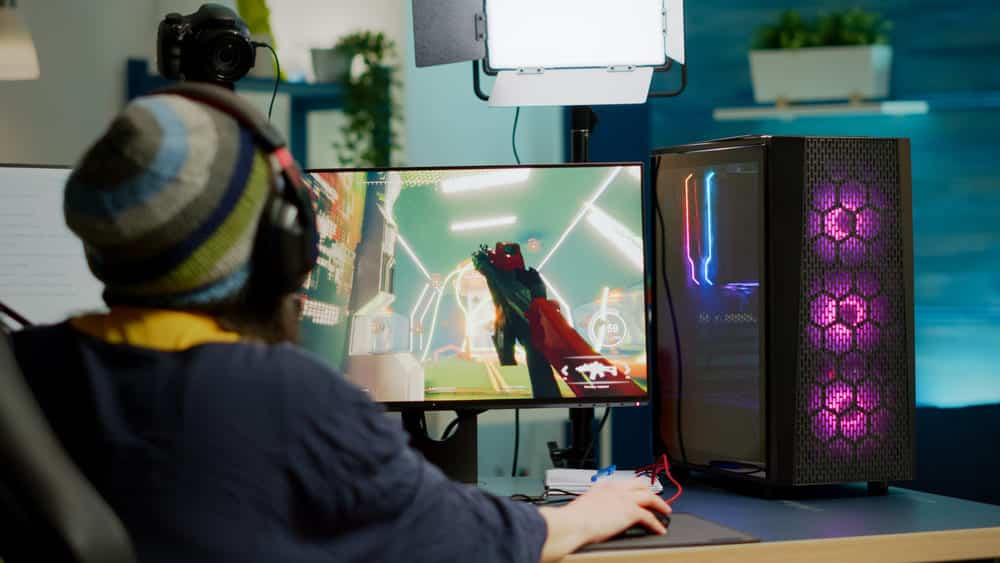
The monitors and similar screens are essential for everyone. It doesn’t matter if they want to play games or do some editing, using the right monitor is important.
In addition, when it comes down to the right monitor, there are multiple factors to be considered, such as the size and FPS. For the same reason, people ask, “does monitor size affect FPS?” and we have the answers!
Does Monitor Size Affect FPS?
The short is no, the monitor size doesn’t impact the FPS because the FPS is impacted by resolution rather than the screen size. This is because if you increase the resolution, the pixel count that the graphics card has to draw out will increase, hence the reduction in FPS. On the other hand, if the screen size of the monitor is increased, it won’t impact the FPS because size isn’t connected to pixel count, hence no impact on the FPS.
For gaining more insights on this topic, it is important to understand what the FPS is. To illustrate, the movement on the monitor is determined by displaying the quantity of consecutive still images and they are known as frames. The movement of images is known as frames, irrespective of what the monitor is displaying, such as video game, movie, or film. Keep in mind that the individual frames will vary multiple times in a second.
That being said, FPS is defined as the rate at which the frames are displayed on the screen. In addition, a higher FPS promises the display of more frames in a second which leads to a realistic and smooth movement rather than the stuttered and damaged movements. The most important thing to consider is that FPS cannot be determined by the monitor but it’s determined by the media and software that’s being used, graphics card, and CPU.
FPS of The Video Games
When it comes down to the FPS of the video game, it is not impacted by the monitor size there are some other factors that impact it. For instance, the FPS can be affected by the system hardware, such as memory, motherboard, graphics card, and CPU. In addition, the FPS can be impacted by the resolution settings and graphics settings of the game. Not to forget, it’s affected by the optimization of game code and how properly the game code is developed for graphical performance.
To begin with, CPU and graphics card are the most prominent factors that impact the FPS. In simpler words, the CPU can send the instructions and information from apps and programs to the graphics card. Then, the graphics card will process the received instructions which render the graphics and images and transmit them to the monitor for displaying the images. Not to forget, CPU and GPU are directly related to each other.
On the other hand, the performance of the graphics card relies on the CPU, and vice versa. For instance, if the CPU is low-powered, there is no point in upgrading to the latest graphics card if it’s not using the processing power. That being said, you need to find the fine balance between the resolution settings and graphics settings to optimize the FPS.
The Suitable FPS For Gaming
Now that we have established that monitor size doesn’t impact the FPS, it’s obvious to talk about the suitable FPS for gaming. The majority of the latest video games are designed to hit the FPS of 60 but anything between 30 FPS and 60 FPS is suitable. Keep in mind that it’s not because the games are unable to exceed 60 FPS but if you move below 30 FPS, the graphics will be uneven and the motion won’t be fluid.
To summarize, the FPS that you experience varies across the game, depending on the hardware and what activity is being performed in the game. As far as the hardware is concerned, CPU and graphics card can impact the FPS. However, the refresh rate of the monitor can also impact the FPS (no, screen size still doesn’t impact FPS). Not to forget, you can improve the FPS on the monitor by upgrading the hardware and you can also adjust the graphics settings of the game.